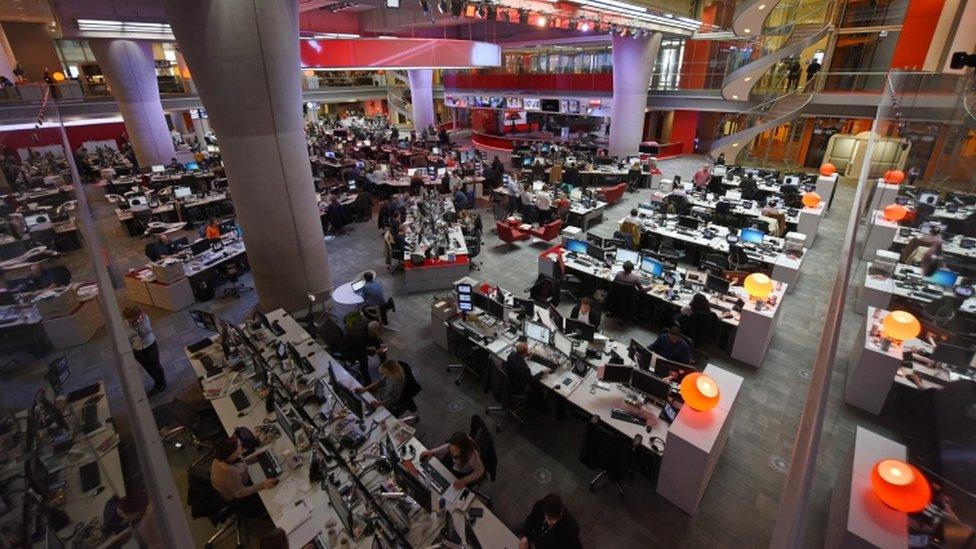How the BBC reports polling day
- Published

Online coverage of election night will come from the BBC newsroom in central London
The BBC, like other broadcasters, isn't allowed to report details of campaigning while the polls are open.
The BBC is required by electoral law to adopt a code of practice, ensuring fairness between candidates and that is particularly important on polling day.
The code of practice is contained in more detailed election guidelines which are written and published for each election - and they include guidance on polling day, here. , external
On polling day specifically, the BBC doesn't report on any of the election campaigns from 00:30 BST until polls close at 22:00 BST on TV, radio or bbc.co.uk or on social media and other channels.
However, online sites do not have to remove archived reports, including, for instance, programmes on iPlayer.
Coverage on the day is usually restricted to uncontroversial factual accounts, such as the appearance of politicians at polling stations, or the weather.
It tends to focus on giving information which will help voters with the process of going to polling stations.
Subjects which have been at issue or part of the campaign - or other controversial matters relating to the election - must not be covered on polling day itself; it's important that the BBC's output cannot be seen to be influencing the ballot while the polls are open.
No opinion poll on any issue relating to politics or the election can be published until after the polls have closed.
Whilst the polls are open, it is a criminal offence to publish anything about the way in which people have voted in that election.
From 22:00 BST normal reporting of the general election resumes, with rolling online BBC coverage overnight, Election 2017 on BBC One with David Dimbleby, Vote 2017 with Carolyn Quinn and James Naughtie on BBC Radio 4 and an election night special on Radio 5live broadcast from London and Salford.